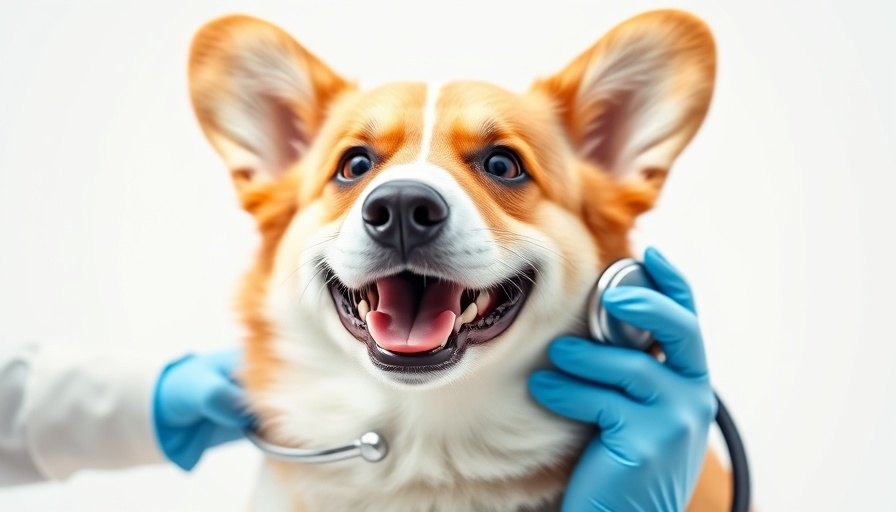
The Overlooked Importance of Thyroid Health in Your Dog
As dog owners, we often prioritize our furry friends' diet, exercise, and vaccines, yet one critical component of their health frequently slips beneath our radar: the thyroid gland. Though small, this butterfly-shaped gland in your dog's neck plays a significant role in regulating metabolism, energy levels, growth, and overall well-being. When the thyroid malfunctions, it can lead to myriad health issues, affecting everything from your dog's coat to their energy levels.
Why Is Thyroid Health So Important?
The thyroid is part of your dog's endocrine system, which produces hormones that govern vital body functions. Primarily, it releases two key hormones: Thyroxine (T4) and Triiodothyronine (T3). While T4 is mostly inactive until converted by the body into T3, T3 is essential for fueling your dog's metabolism. A healthy thyroid ensures that your dog burns energy effectively, maintains body temperature, grows hair, repairs skin, and supports brain and heart functions.
When the thyroid becomes underactive, a condition known as hypothyroidism arises. This disorder is particularly notorious, as its symptoms often blend seamlessly with those of aging or common ailments, making it challenging to recognize. Weight gain, lethargy, and various skin issues might easily be dismissed as signs of getting older when, in reality, they may be symptoms of a thyroid malfunction.
Understanding Hypothyroidism in Dogs
Hypothyroidism is not just a medical term; it represents a significant health concern for many dogs. It develops gradually and can be easily overlooked, especially since symptoms can insidiously creep in. Various studies suggest that nearly half of the dogs treated for hypothyroidism may not actually have this condition. This alarming statistic underlines the risks associated with misdiagnosis and the potential for dogs to undergo unnecessary and lifelong treatments.
The two main types of hypothyroidism are:
- Primary Hypothyroidism: The most common type, often caused by the immune system attacking the thyroid gland.
- Secondary Hypothyroidism: Less frequently seen, this type occurs when another gland, namely the pituitary gland, fails to stimulate the thyroid properly.
Recognizing Symptoms Before It’s Too Late
Given that the symptoms of low thyroid function can mimic normal aging, it's crucial for dog owners to be vigilant. Here are a few signs that could indicate your dog might be dealing with hypothyroidism:
- Weight gain without increased food consumption
- Decreased energy and lethargy
- Coat issues such as hair loss or dry skin
- Behavioral changes like increased irritability
- Frequent ear infections
How to Support Your Dog’s Thyroid Health
Proper diagnosis of a thyroid disorder requires more than just a routine T4 test. Owners should seek a comprehensive thyroid panel, including additional antibody tests, and detailed discussions about observed symptoms. If diagnosed with hypothyroidism, the following approaches can significantly assist in supporting thyroid health:
- Balanced Nutrition: Ensure your dog receives a nutrient-rich diet tailored to their individual health needs.
- Reduce Toxin Exposure: Limit exposure to environmental toxins, which could further complicate thyroid function.
- Stress Management: Implement routines that promote calmness and secure feeling, as stress can disrupt hormonal balance.
- Utilize Harnesses Over Collars: Protecting the neck from undue pressure can benefit overall thyroid health.
Future Considerations: Emphasizing Holistic Health
The conversation surrounding thyroid health should not be limited to just diagnosis and medication; it should embrace holistic measures as well. Advocating for regular wellness checks and encouraging your veterinarian to include thyroid function assessments could make a fundamental difference in your dog's quality of life.
Furthermore, lifestyle adjustments that prioritize emotional well-being contribute to a healthier endocrine system. From fostering social interactions with other pets to ensuring ample exercise, a dog's emotional health directly correlates to their physical health.
Concluding Thoughts: Equip Yourself With Knowledge
As a devoted dog owner, having awareness about your dog's thyroid health empowers you to take proactive steps toward their welfare. Understanding the significance of this small but mighty gland can help catch issues before they spiral into more significant problems, ensuring your dog leads a happy, healthy life. Seek regular veterinary advice, remain observant of behavioral changes, and use this knowledge to advocate for your pet’s well-being.
For more invaluable insights and expert advice on keeping your pet in optimal health, we invite you to subscribe to our newsletter. This free resource is filled with tips to ensure your beloved pet remains in tip-top shape!
 Add Row
Add Row  Add
Add 




Write A Comment